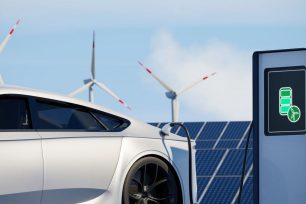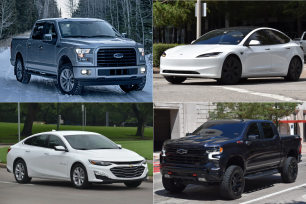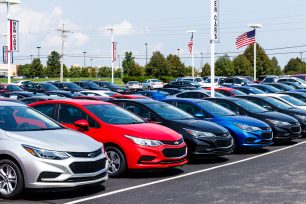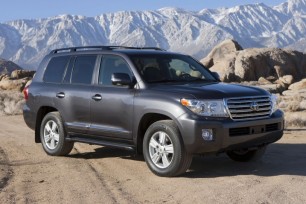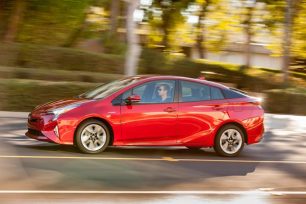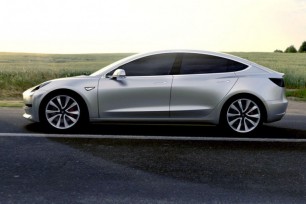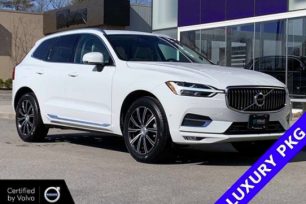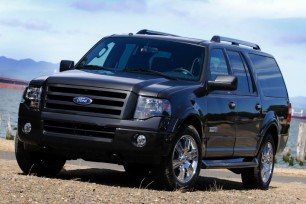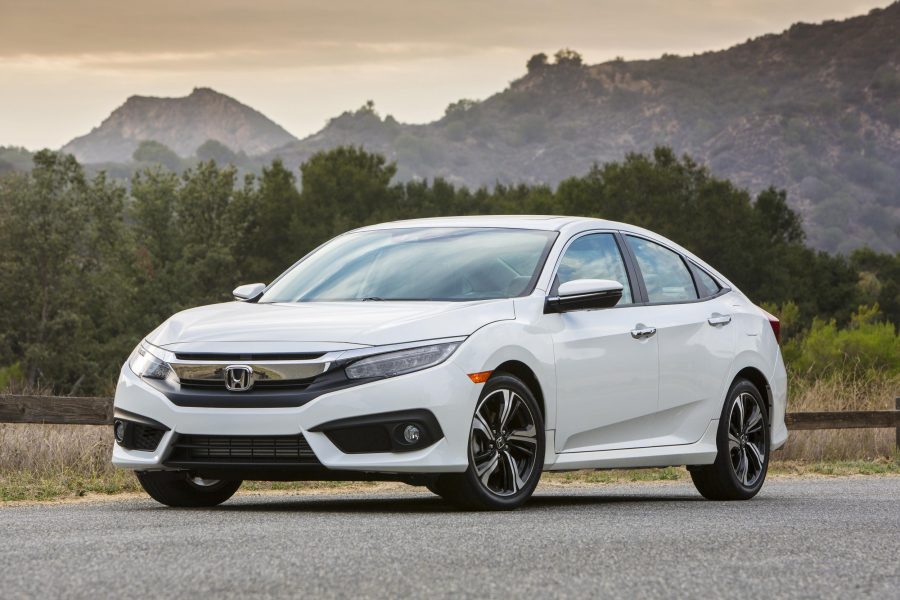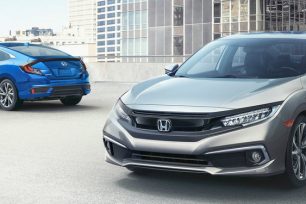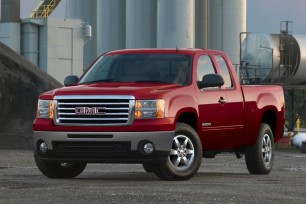While electric vehicles still make up a tiny sliver of new model sales, the growth rate for these battery-pack powered machines is outpacing the sale of internal combustion engines. Now consider that trucks have been among the best-selling models in the U.S. for several decades, and it’s logical to assume the impending wave of electric trucks is going to lead to even faster growth in electric vehicle market share.
The real challenge for electric pick-up trucks is convincing traditional truck buyers to give them a chance. A quick glance at who buys the best-selling Ford F-150, along with the second- and third-best-selling Ram 1500 and Chevrolet Silverado, and it’s clear these folks aren’t exactly bleeding-edge tech geeks. Truck owners tend to think of their vehicles as pure utility devices – tools engineered to get important work done. These buyers have no time or patience for compromises, regardless of powertrain.
The good news is, electric motors, battery packs, and trucks are a magic combination. Electric motors provide instant torque, and lots of it, which translates into higher towing capacity. Battery packs tend to be big and heavy, making them easier to package in electric trucks than electric cars. And because work trucks are often used as commercial vehicles, with specific, pre-determined routes, they can more easily leverage charging stations by incorporating them into their daily delivery route. Commercial use of EV pickups also includes tax incentives due to their zero-emission status.
With so many functional benefits for an electric pickup truck you might wonder why they didn’t beat electric cars to market. The biggest reason goes back to the role trucks play for automakers and customers. Trucks are the single biggest profit center for U.S. automakers, and as mentioned before, the profile for North American pick-up truck buyers suggests they won’t easily switch from internal combustion to electrification. For instance, until recently the range for most electric vehicles was less than 200 miles before requiring a multi-hour stop at an EV charger to get another 200 miles. That doesn’t sound very utilitarian, does it?
However, in recent years larger kilowatt-hour (kWh) battery packs, along with a growing network of fast charging options, has improved range and reduced charging times. Better still, the cost of producing lithium-ion batteries has dropped while their power density has improved. This is reflected in today’s impressive electric truck specs, including over 500 horsepower and sports-car-like zero-to-60 mph times. Today, these trucks offer incredible payload capacity along with an EPA-certified 300-plus miles of range. This means electric pickup truck customers can travel into the wilderness, enjoy an off-road adventure, and still make it back to a charging station without running out of electricity.
Let’s take a closer look at the fleet of electric trucks about to enter production, including at least one that’s are already being delivered to customers.
Rivian R1T
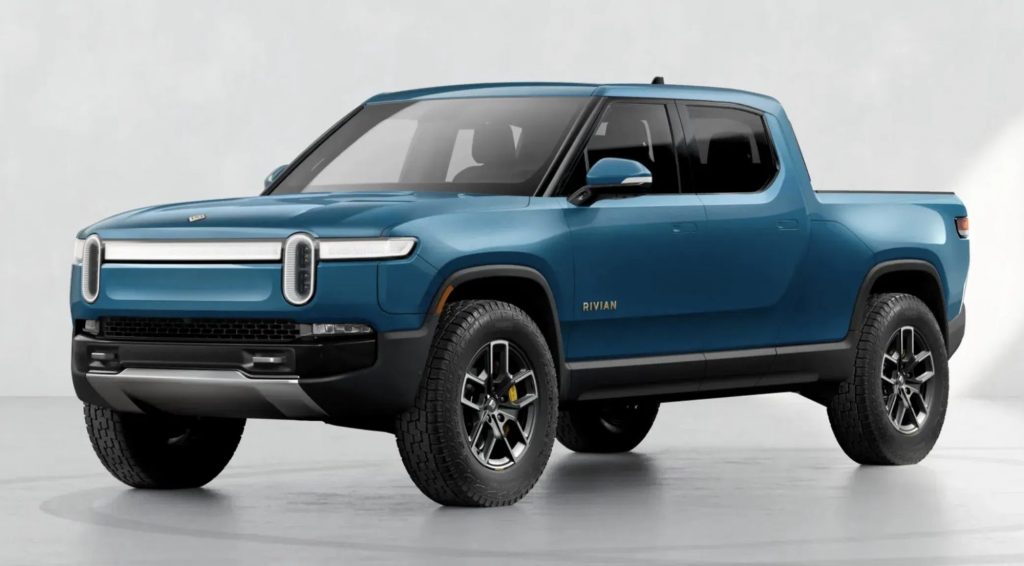
With a base price of $67,500 (not including the $7,500 federal tax credit), the midsize Rivian R1T EV pickup starts where most full-size trucks end, at least in terms of cost. However, the R1T’s impressive specs and innovative features are unlike anything offered in a conventional truck. Range for the R1T is between 250 miles and 400-plus miles, depending on trim and battery pack. It also boasts up to 754 horsepower, 14.9 inches of ground clearance, 3-plus feet of water fording, an 11,000-pound towing capacity, and a zero-to-60 time of 3 seconds. For charging needs, the R1T can use DC fast charging to recapture 140 miles in 20 minutes.
Even more impressive are the R1 T's innovative, truck-friendly features, like a Meridian audio system, a panoramic glass roof (with a removable roof coming soon), LTE internet connections with over-the-air updates, Alexa voice controls and premium interior materials. Functional features, like a full-size spare under the bed floor, a front trunk (“frunk”), a long “Gear Tunnel” storage compartment (with an optional mobile kitchen), and a rooftop tent support off-road adventuring. We’ve driven the Rivian R1T and can confirm the truck’s quality, speed and advanced features. Rivian has already started delivering vehicles to customers, and if this is the future of electric trucks, we’re all for it. Apparently, Amazon agrees, with a 22-percent stake in the company and an order for 100,000 Rivian delivery trucks in the coming years.
GMC Hummer EV Pickup
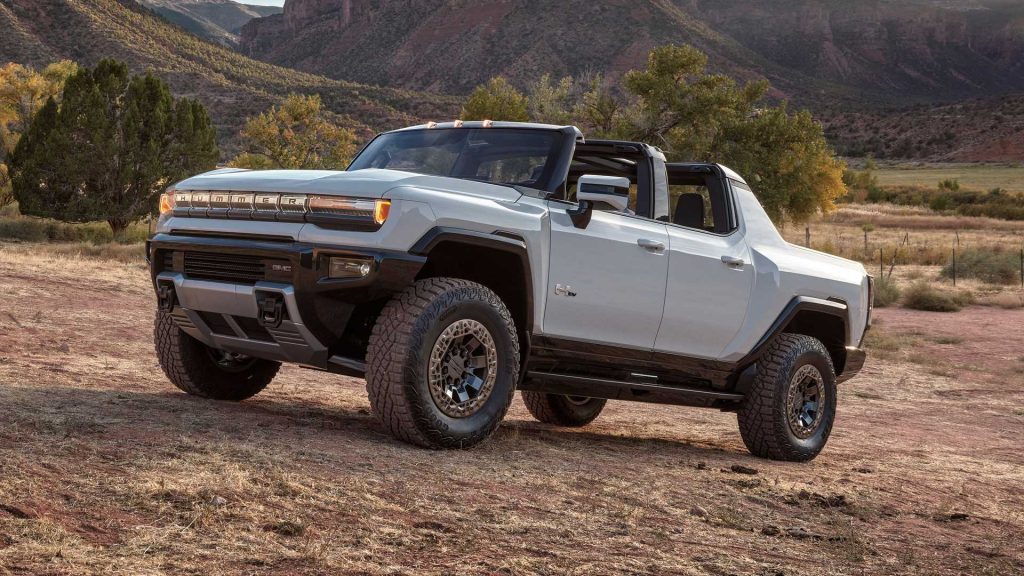
When General Motors stopped producing Hummers in 2010 they were being vandalized by environmentalists due to their earth-UNfriendly reputation. Now the brand is back, but this time as an electric truck (and upcoming SUV) to sidestep that negative brand image. GM says the new GMC Hummer EV will offer up to 1,000 horsepower and 11,500 pound-feet of torque (no, that’s not a typo). GM also estimates a zero-to-60 time of 3 seconds and a 350-plus-mile range. Interior features include a 12.3-inch digital instrument cluster and a 13.4-inch central touchscreen. Additional high-tech amenities include GM’s Super Cruise, a semi-autonomous hand-free driving mode not unlike Tesla’s Autopilot feature.
The Hummer EV goes beyond high-tech toys with advanced off-road features like “CrabWalk”, which leverages the electric truck’s 4-wheel steering tech to move diagonally at low speeds. There’s also an Extract Mode, which uses the Hummer’s adaptive air suspension to raise 6 inches when scaling rocks, plus up to 18 high-def exterior cameras, called Ultravision, to show drivers exactly what’s going on around, and under, the electric truck. And to keep things light, literally, the Hummer will offer removable roof panels to let passengers experience the great outdoors. We’ve also had seat time in the Hummer EV, and its combination of power, performance, and high-tech features will set a new standard in premium off-road vehicles. The GMC Hummer EV launch edition hits dealerships in late 2021, with a $112,000 starting price, but later versions will “only” cost $80,000.
Ford F-150 Lightning
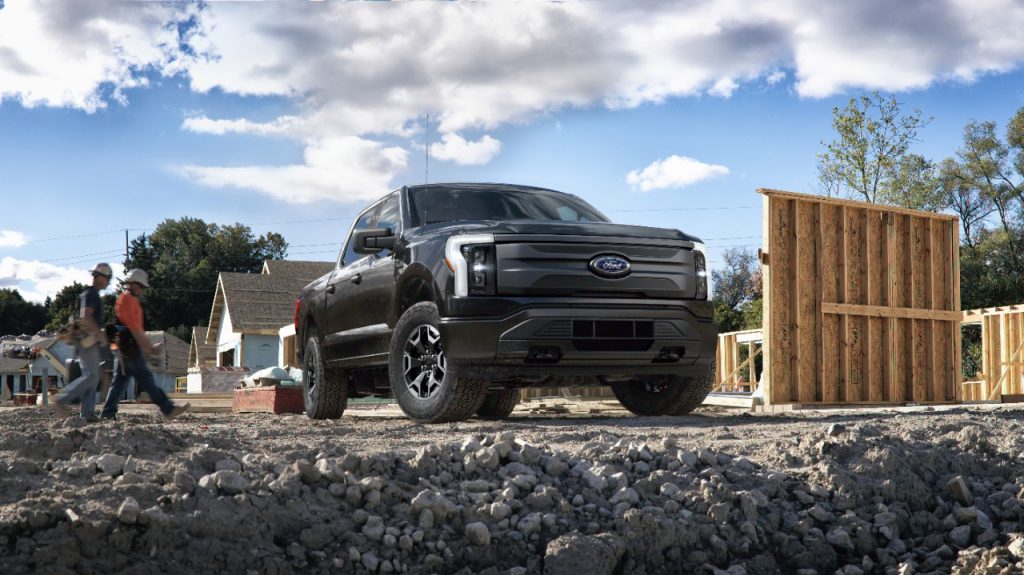
Not to be outdone by its primary Detroit rival, Ford has an all-electric F-150 waiting in the wings, with an on-sale date scheduled for the spring of 2022. Unlike the premium pricing of the Rivian and GMC Hummer EV, the F-150 Lightning will start at a highly-attainable $40,000, though high-grade versions with larger battery packs could easily cost twice that. That base price includes a standard battery with a 230-mile range, 426 horsepower, 775 pound-feet of torque, a 2,000-pound payload rating, and a 7,700-pound towing capacity. An upgraded battery moves those numbers to 563 horsepower, 300 miles of range, a 10,000-pound towing capacity, and 1,800 pounds of payload (the larger battery eats up 200 pounds of payload capacity).
Both versions of the Ford F-150 Lightning include two motors (one for each axle) and a frunk with four 110-volt outlets and dual USB chargers, plus enough space for two sets of golf clubs. As with the recently-introduced F-150 hybrid, the all-electric F-150 will be able to power a home for up to 3 days if the electric grid goes down. Additional high-tech features, like the new Sync 4a infotainment system, a 15.5-inch central touchscreen, full Amazon Alexa integration, and Ford’s BlueCruise semi-autonomous driving technology, will be available on the F-150 Lightning.
Chevrolet Silverado

With an on-sale date in 2023…or 2024…the Chevrolet Silverado electric pickup is still a ways off. But with GM’s Hummer EV paving the way we’re certain Chevy’s version will utilize many of the Hummer’s components, including GM’s Ultium battery technology that’s expected to deliver at least 400 miles of range, plus the Hummer’s four-wheel steering and, hopefully, a removable roof option. The all-electric Silverado debuts at the Consumer Electronics Show (CES) on January 5th, 2022, and will be produced at GM’s Factory Zero plant in Detroit.
Tesla Cybertruck
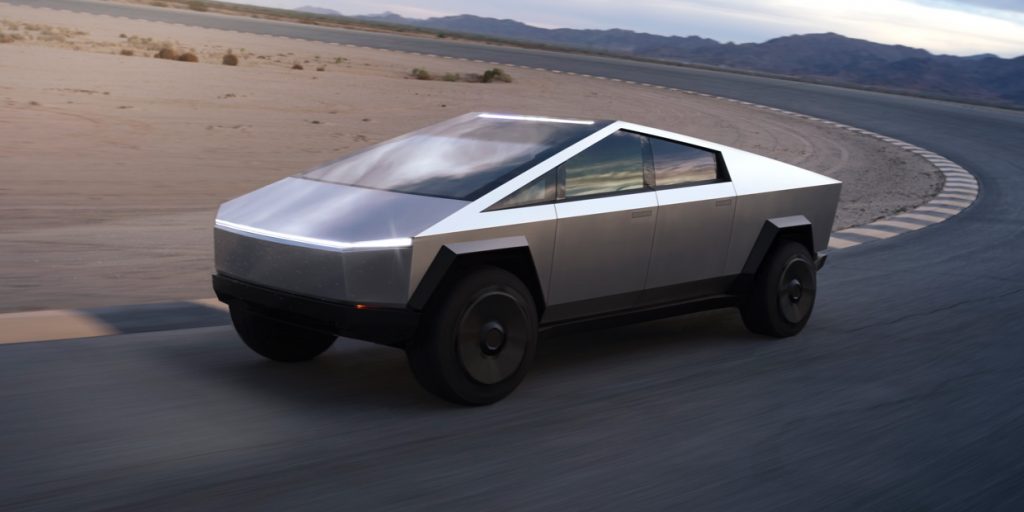
When Elon Musk introduced the Tesla Cybertruck at its California headquarters in November of 2019, its specs seemed radical. A range of up to 500 miles? A zero-to-60 time of 2.9 seconds? A payload capacity of 3,500 pounds and a towing capacity of 14,000 pounds? And at a starting price of $40,000? It seemed Tesla was on the verge of upending the automotive world yet again.
Two years later and, as listed above, all of those specs have been matched, or beaten, by North American competitors like Ford, GM and Rivian. In the meantime, the Cybertruck’s launch date has been moved back and it will hit showrooms later than the R1T, Hummer EV and, probably, the Ford F-150 Lightning (the Cybertruck should still beat the Silverado…probably). This will be an interesting test of Tesla’s influence over the rapidly-evolving electric vehicle market. For the first time, he’ll be entering a vehicle segment already dominated by competitors. Will Elon’s fanbase stay loyal, keeping the Cybertruck on backorder for months or years after it debuts?
We’ll see…
And Maybe…
We’re confident the above electric pickup trucks will see the light of day in the next 24 months. But for those wondering about these other rumored trucks, we’ll provide what facts we know:
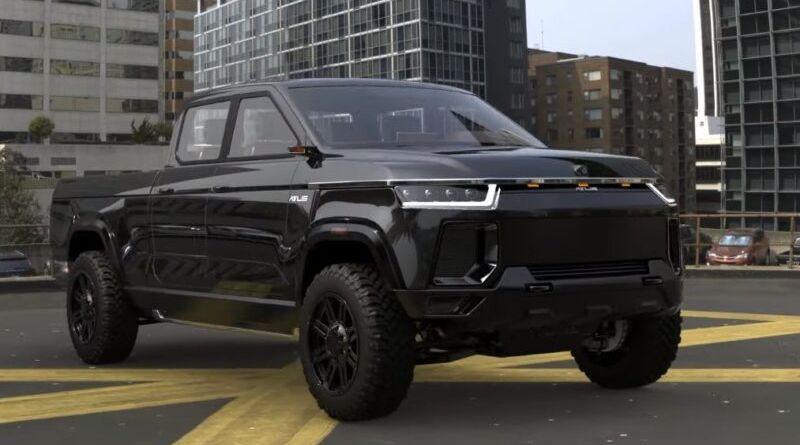
Atlis XT – Based in Mesa, Arizona and touting a full-size EV truck with a range up to 500 miles and a recharge time of 15 minutes, Atlis Motors is a startup EV truck company at the prototype stage, and says production of the XT electric pickup will begin in late 2022.
Bollinger B2 – Said to start production in late 2021, the Bollinger B2 is supposed to have a 614 horsepower, 668 pound-feet of torque, a zero-to-60 time of 4.5 seconds, and a 200-mile range. The price is expected to be $125,000.
Lordstown Endurance – Based in Ohio and leveraging a former GM plant, Lordstown Motors was supposed to start selling electric trucks in 2021. But questions regarding the company’s product claims and finances, followed by a sale of the plant to Foxconn, has delayed production.
Nikola Badger – The Badger was originally slated for the 2022 model year while boasting figures like 900 horsepower, a 300-mile range, a zero-to-60 time of 2.9 seconds and a starting price around $60,000. Now the company is focusing on long-haul big rig trucks with no Badger production plans.
We look forward to seeing if pickup truck drivers will embrace these new electric models.











